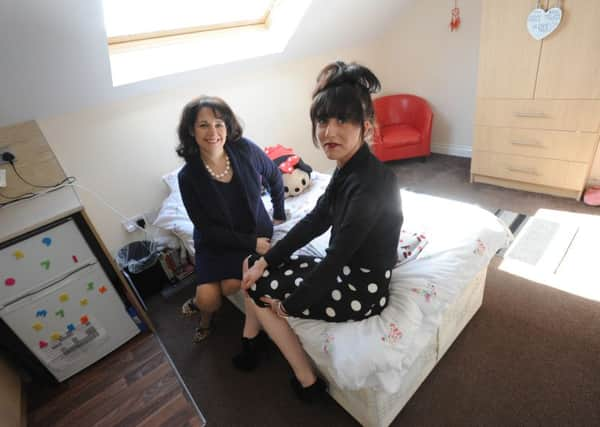New Sunderland hostel helps young people get to the heart of their homeless issues


Centrepoint has launched its second hostel in Sunderland, with the additional, smaller accommodation providing more chances to give 16-to-22-year-olds the help they need to find their independence, as well as a foot in the door to a career and long-term plans to finding a place of their own.
Each of the seven rooms are en-suite, with regular checks made to ensure tenants are kept tidy, and help to manage their finances, as well as their doctors’ appointments and any mental health issues.
Advertisement
Hide AdAdvertisement
Hide AdThe seven-strong team of workers help residents keep to a regular routine to prepare them for the world of work, with a member of staff on hand around-the-clock.
In addition to getting the hang of doing their own cleaning, laundry and cooking, they also have a gym pass and can go rock climbing one night a week.
Jazmine, who had been in care since the age of 14, is among those who have moved into the house, after her tenancy came to an end at her last birthday.
Facing homelessness, her social worker put her in touch with Centrepoint and four months on, she is set to take a hairdressing course and has her hopes pinned on a job in a sports centre.
She said: “I feel safe here and I didn’t have that before.
“I feel a lot more positive than I did before I came here.
“It’s like a family.”
Advertisement
Hide AdAdvertisement
Hide AdSunderland Central MP Julie Elliott joined in the official launch.
She said: “I think the key for me is the support that the people are getting.
“The building is great, the facilities are great, but it’s the actual support that is so important.”
The young people can stay for around 12 months as they work towards sustaining their own tenancy.
Advertisement
Hide AdAdvertisement
Hide AdCentrepoint has supported 420 homeless young people in Sunderland in the last year.
Its North East manager Diane Cosstick said: “Many of the young people staying here are at the point of feeling written off by society. “They face a number of barriers to employment and housing, but lack the means and know-how of how to address them, leaving them unable to live independently and vulnerable to substance use, abuse and crime.
“Our emphasis is on providing a stable, homely environment, something that many of the resident’s simply won’t have experienced before.”